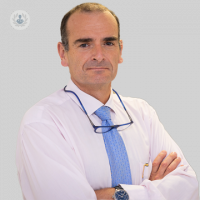Snoring:What is and how to treat it ?
Written by:Snoring does not have to be a health problem. However, there is a widespread social problem, since people who share a bed with someone who snores will have discomfort when sleeping.

The Snoring is a sound emitted when the air inspired or expired vibrated tissues of the upper airway as these hinder their passage. There is, therefore, snoring nasal origin, another of pharyngeal origin, another basilingual and finally, a snore of laryngeal origin.
It is estimated that 45% of adults snore occasionally and 25 % do so frequently.
Snoring itself is not any pathology that may endanger health. However, it is necessary to consult your family doctor, as it could hide a syndrome obstructive sleep apnea that is associated with serious diseases such as hypertension, stroke or acute myocardial infarction.
Causes and Prevention
The causes of snoring occur because the tissues to vibrate sometimes repeatedly traumatized and increase its size. The best prevention is to act surgically corrected early on that growth. There are habits that allow snoring worsens or maintained as control of pharyngolaryngeal reflux, abuse of snuff, alcohol or obesity.
Treatment
Currently snoring can be corrected with numerous minimally invasive techniques. These include:
1) radiofrequency turbinate ( reduction surgery turbinates )
2) endoscopic septoplasty without tamponade ( surgery to correct the nasal septum)
3) palatal implants (devices that are inserted into the soft palate to bring you strength reversibly )
4) chemical sclerosis ( injection of sclerosing solution on the palate to create a scar and prevent camera shake )
5) RF palate and basilingual (to send radiofrequency energy to decrease the volume of the area responsible for snoring )
These techniques try to create scarring and fibrosis in hypertrophic and with them was able to reduce its volume tissues and, therefore, reduce the airflow obstactulo. These techniques are ambulatory, with little complications and do not require surgery.


